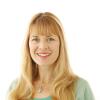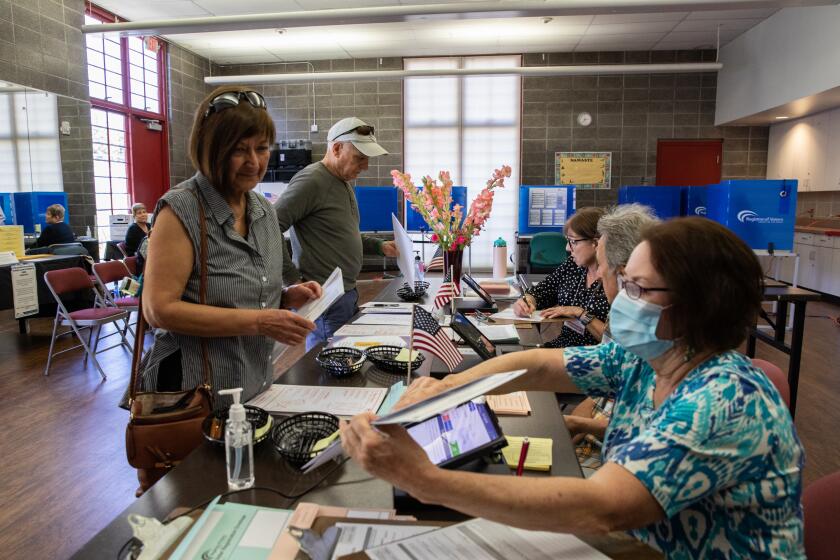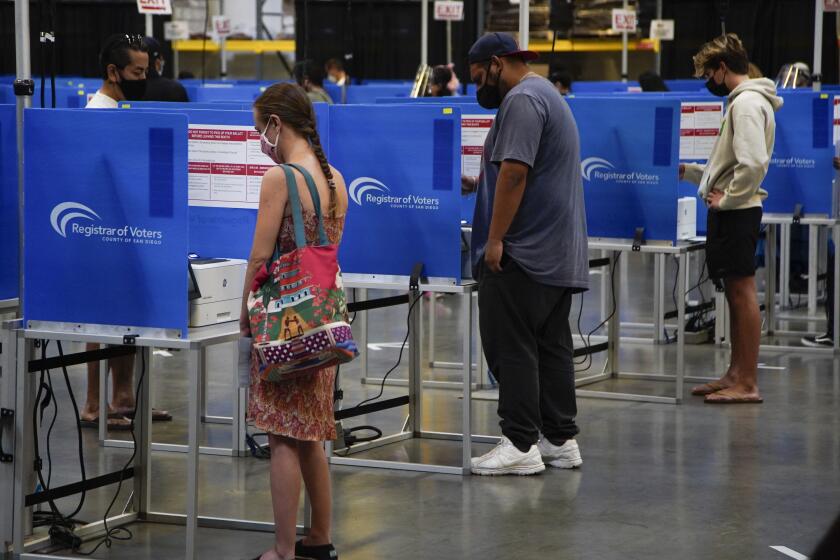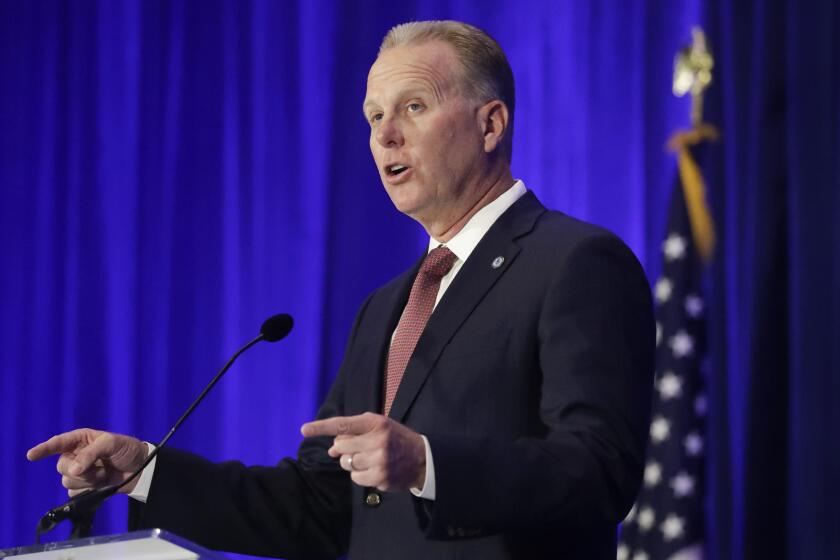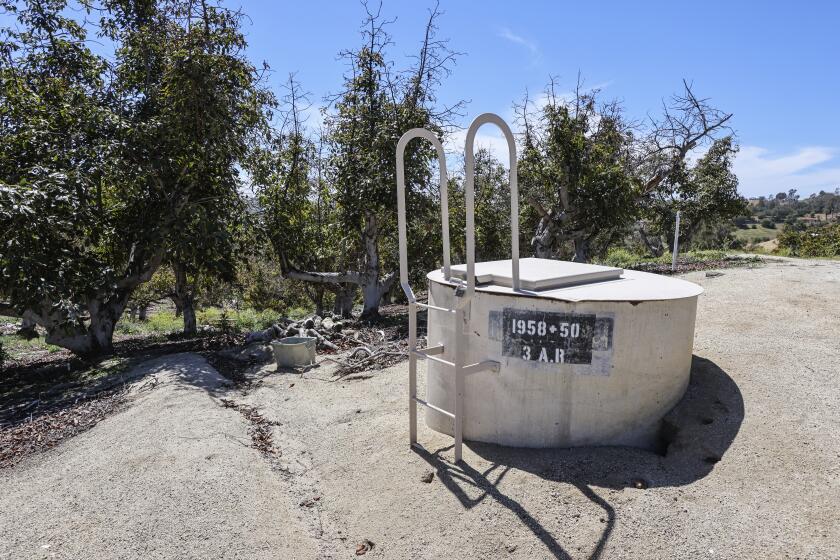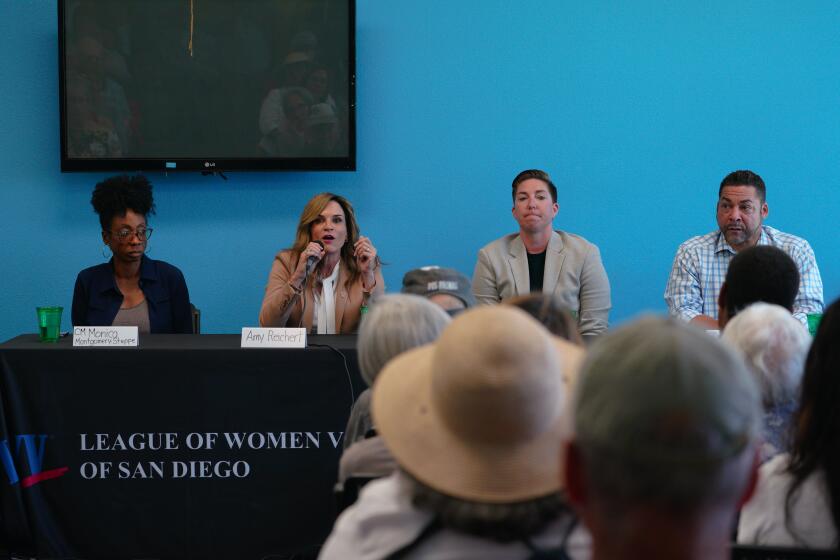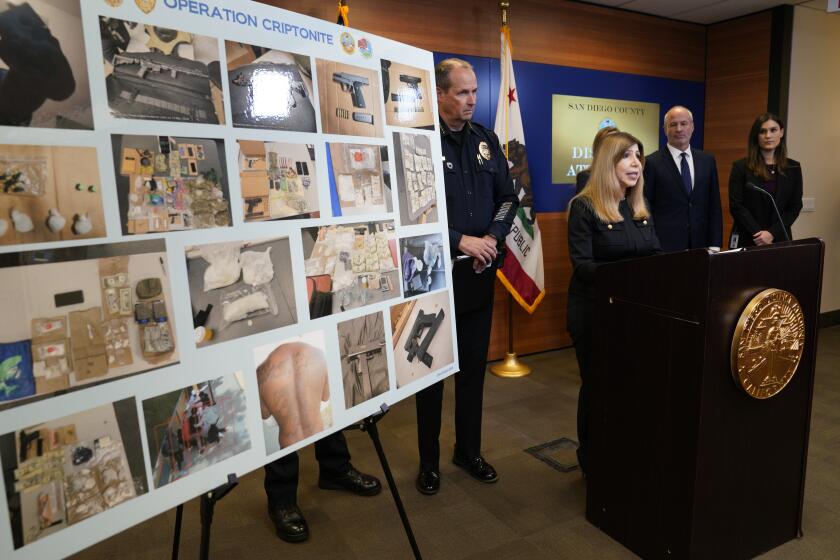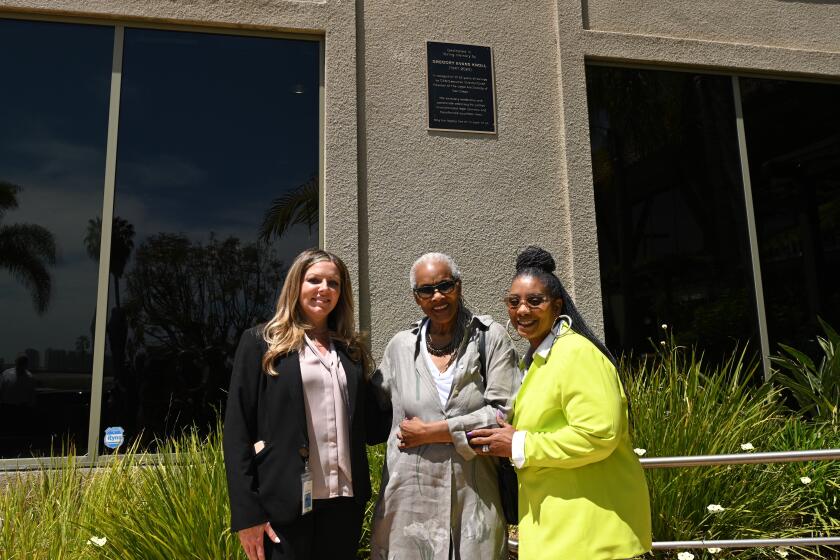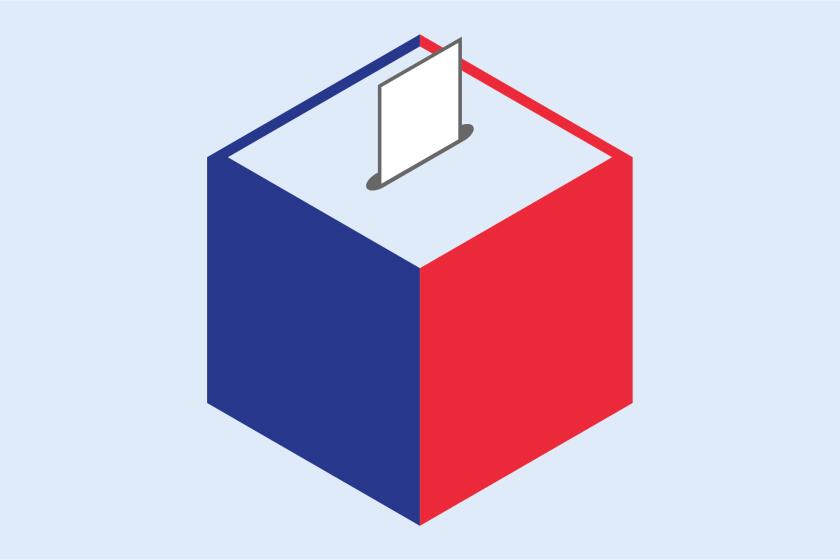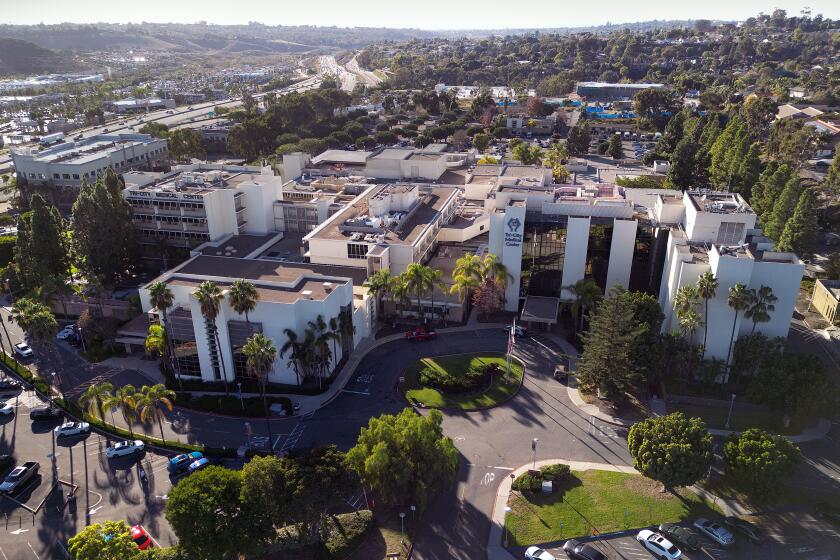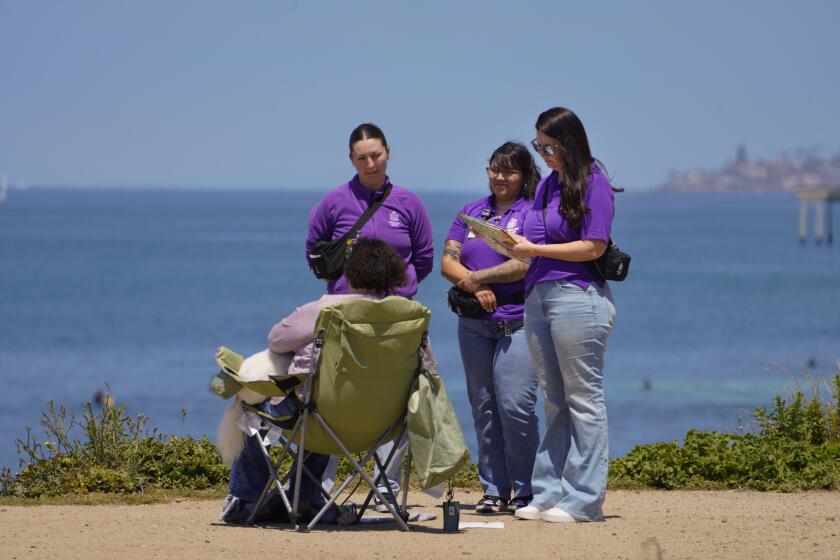Thousands take to streets in race against breast cancer
The first two years that Ederline Hugo joined in the Susan G. Komen San Diego’s annual Race for the Cure, she walked for her sister, who was diagnosed with breast cancer three years ago. This year, Hugo walked on her own behalf as well.
Hugo, 51, was joined by her husband Milton and family friends, as she marked seven months of fighting the disease.
“For us, it was a time to come celebrate survivorship,” Hugo said. “This time it was even more special, because I got to walk with my sister, a three-year survivor.”
The sisters were among 9,000 people who took to the streets Sunday for the 22nd annual event, which raises funds for the organization’s services.
Columns of walkers streamed through Balboa Park and up the northbound lanes of state Route 163, clad in every shade of pink from ballet to bubblegum. Some — including men — wore pink tutus as part of their ensembles. And at least 200 dogs sported pink bandannas or bows as part of the new “Pups for the Cure.”
“We have survivors, people who are walking for those they’ve lost, and those who are passionate about the cause,” said Shaina Gross, president and CEO of Susan G. Komen San Diego.
Participants run or walk the 5K or one-mile courses, in order to raise the profile of the disease, which strikes one in eight women. It brought in about $1 million last year and is expected to raise $915,000 this year. The race is the organization’s largest fundraiser, generating money for free mammograms, ultrasounds, biopsies and other diagnostic tests to spot breast cancer early, as well as for support services for women living with the disease.
The organization offers help with rent or mortgage payments, and transportation assistance to get patients to medical appointments. It also provides meal deliveries, childcare, or even wigs for patients who lose their hair to chemo, Gross said.
A quarter of its funding is earmarked for breast cancer research, she said.
Forty thousand women die of breast cancer each year in the United States, with one death per day in San Diego alone, Gross said. Many of those are preventable, however, and survival rates have improved in recent decades. Five-year survival rates are nearly 100 percent for women diagnosed with stage I breast cancer, 93 percent for those in stage II, and 72 percent for women in stage III, according to the American Cancer Society.
With a favorable outcome for most women who catch and treat the disease promptly, “our focus is early detection and quality of treatment,” Gross said.
That was life-saving for Wendy Shurelds, 50, who just hit five years after her diagnosis of stage I breast cancer, followed by a mastectomy and chemo. The San Diego resident was out of work in 2013, and couldn’t afford a mammogram. She almost skipped it, but was able to get the scan for free through Susan G. Komen. She credits that mammogram for her survival.
“Me being uninsured, I almost did not have it,” said Shurelds, decked out for Sunday’s event in a pink feathered headdress. “My journey was (assured) because they paid for a lot of my services.”
Now, Shurelds works as a community resource advocate for Komen’s Circle of Promise, which educates African-American women about the disease, their unique risks and the resources available.
“I’m paying it forward and giving it back by being part of Susan G. Komen,” she said. “I’m a walking testimony of what Komen services can do, and why this particular event is so critical to the San Diego community.”
Hugo also counts herself fortunate for early detection. Although her cancer was an aggressive variety, it was found in the earliest stage, and her test results came back clear months after a bilateral mastectomy, reconstruction and three punishing doses of chemotherapy. Still, she hopes that future generations will have better diagnostic tools and gentler treatment options.
The race, she said, means “being able to work together for a cure, and to teach younger generations to be really aware of the signs and symptoms of cancer.”
Her husband Milton joined her on the 5K walk, just as he joined her on the more arduous path through breast cancer treatment. When his wife was first diagnosed, he said, “I was in denial. This happens to other people. This can’t be happening to my wife.”
When he came to terms with her diagnosis, he said, he took to heart his role in her recovery, letting her know “I’m with you in this whole thing, from beginning to end.”
deborah.brennan@sduniontribune.com Twitter@deborahsbrennan
Top headlines by email, weekday mornings
Get top headlines from the Union-Tribune in your inbox weekday mornings, including top news, local, sports, business, entertainment and opinion.
You may occasionally receive promotional content from the San Diego Union-Tribune.
